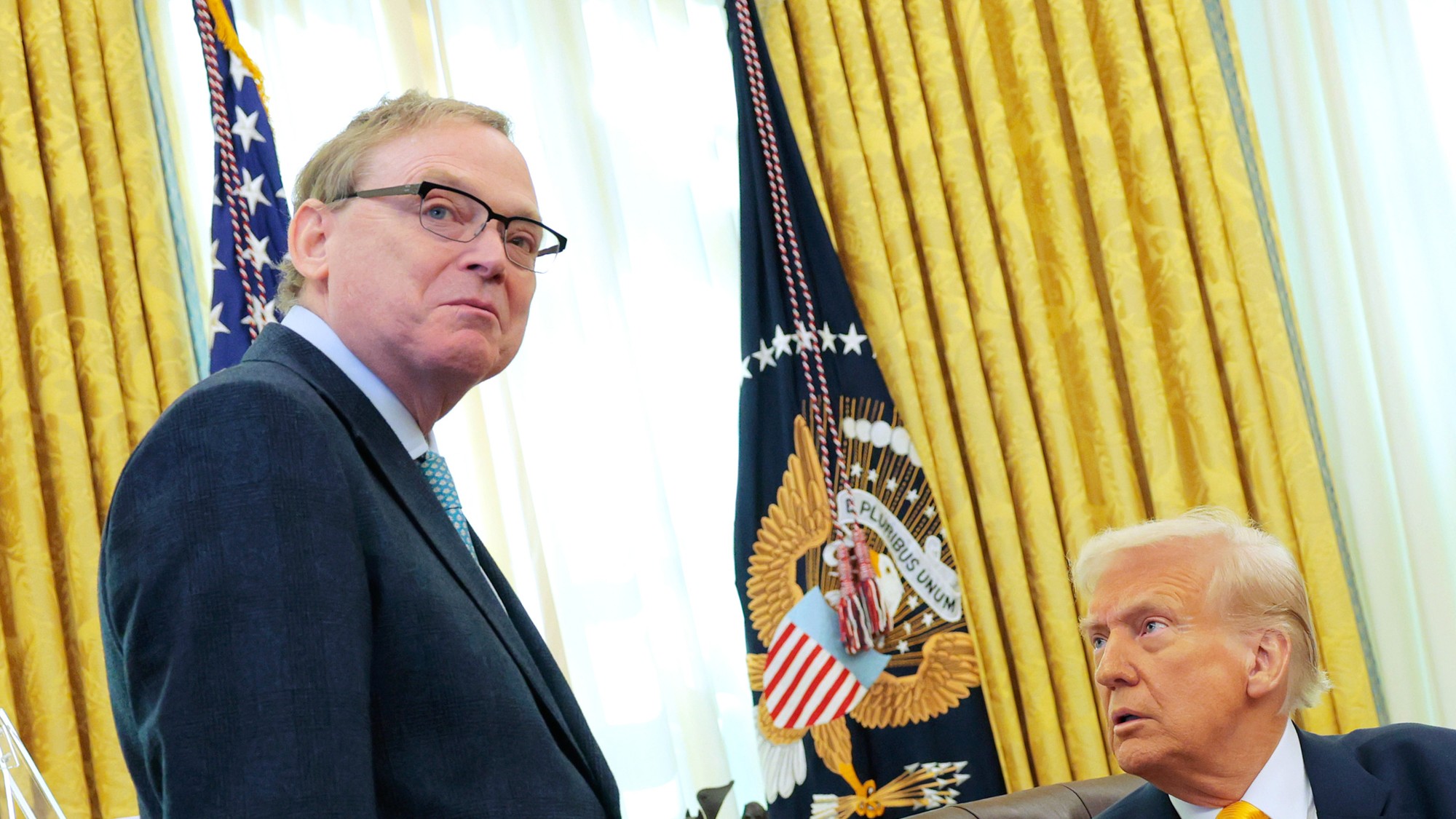The Man Who Believes Medicaid Cuts Won't Hurt Medicaid

The Trump Administration's Medicaid Cuts and the Debate Over Their Impact
The Trump administration’s proposed changes to the Medicaid program, often referred to as the “Big, Beautiful Bill,” aim to reduce spending by approximately $800 billion over the next decade. This would involve removing around 8 million Americans from the program’s rolls. While this is the projection made by the Congressional Budget Office (CBO), the hospital industry, and common sense—suggesting that cutting healthcare access for low-income individuals will lead to loss of coverage—the administration has a different take.
According to the Trump administration’s own projections, no one will lose their insurance under these changes. If this were true, it would be an extraordinary outcome, akin to a fiscal miracle. To explain this, the administration has turned to Kevin Hassett, the director of the National Economic Council, known for his optimistic and often unproven economic forecasts.
Hassett recently appeared on CBS’s Face the Nation, where he defended the plan, stating, “It’s sound budgetary politics,” and claiming, “I think that nobody’s going to lose their insurance.” However, his argument lacked convincing evidence or a clear explanation of how this outcome could be achieved.
Challenging the CBO’s Reliability
Hassett’s defense of the administration’s position was primarily based on discrediting the CBO. He pointed to past inaccuracies, particularly during the debate over the Affordable Care Act (ACA) in 2017. He claimed that the CBO had predicted a loss of 4 million insured individuals between 2017 and 2019, with double that number over the following decade. In reality, the number of insured people increased, according to Hassett.
However, this argument overlooks the fact that the specific legislation in question—the proposal to repeal the ACA—never became law. While Trump did propose a national Medicaid work requirement in 2017, and a bill including that provision passed the House, it ultimately failed in the Senate. Despite this, Trump signed executive orders allowing states to implement Medicaid requirements. Arkansas was one of the first to do so, but the new rules proved difficult for users to navigate and led to significant coverage losses without any measurable increase in employment.
This real-world example influenced the CBO’s model for the “Big, Beautiful Bill” and highlights the potential consequences of such policies. While other states might develop more effective systems, the primary goal of these requirements is to save money by reducing the number of people on Medicaid.
A Questionable Economic Track Record
Hassett has a history of making optimistic predictions that have not always panned out. As part of the supply-side economics movement, which has been criticized for its unrealistic assumptions, Hassett co-authored the book Dow 36,000, which predicted the stock market would quadruple in a few years. It took over two decades for the Dow Jones to reach that level.
During the early stages of the coronavirus pandemic, Hassett created a “curve-fitting exercise” suggesting that deaths from the virus would peak in April and drop to near zero by mid-May. This prediction did not come to pass.
Despite these failures, Hassett has continued to hold influential positions within the Trump administration. His current role involves defending the Medicaid cuts and questioning the credibility of the CBO. He argues that the agency should re-evaluate its past mistakes before being taken seriously again.
The Need for Transparency
One of the most concerning aspects of the administration’s stance is the lack of transparency. When asked about the model used to arrive at the claim that no one will lose coverage, the administration has provided no details. Instead, they rely on the reputation of figures like Hassett, whose track record includes several high-profile errors.
While the administration continues to push forward with its plans, the public is left wondering whether these claims are based on sound economic reasoning or simply wishful thinking. The debate over the impact of these Medicaid cuts remains a critical issue, with significant implications for millions of Americans who depend on the program for healthcare.
Post a Comment for "The Man Who Believes Medicaid Cuts Won't Hurt Medicaid"
Post a Comment